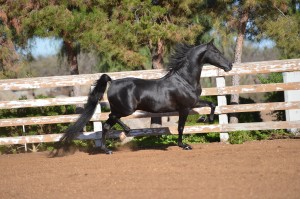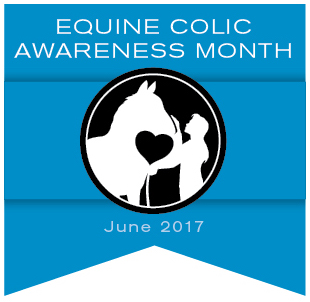 Phil was and is a very handsome, athletic and competitive young Morgan Horse. Phil and I had just completed his first competitive class at the New England Regional Horse Show in New Hampshire where he took third place in a field of eight horses. Six of them were former world champions, so in his first outing at New England he had in affect ‘split’ the world champions, pretty good for a young horse and amateur driver. His trainers, Gerry Rushton and Stacy Hennesy of Rushton Stables, were very happy with him and they were looking forward to the next class with hopes of moving up in the competitive rankings.
Phil was and is a very handsome, athletic and competitive young Morgan Horse. Phil and I had just completed his first competitive class at the New England Regional Horse Show in New Hampshire where he took third place in a field of eight horses. Six of them were former world champions, so in his first outing at New England he had in affect ‘split’ the world champions, pretty good for a young horse and amateur driver. His trainers, Gerry Rushton and Stacy Hennesy of Rushton Stables, were very happy with him and they were looking forward to the next class with hopes of moving up in the competitive rankings.
It was the second day of the competition and Phil had decided to ‘play’ with a loose board in the vintage wood stall that he was living in. He discovered, quite to his delight, that if he pulled on the board he could make a loud snapping noise when he let it go. Later we found out that with each ‘snap’ Phil ate a little bit of the board. We quickly put a cribbing mask on him to stop his fun. It turned out that by the time we found out what he was doing, it was too late. Gerry and Stacy noticed that Phil was pacing around his stall and that he was not eating. It was time to call in the show veterinarian to have a look at him. The show veterinarian feared Phil was showing signs of colic and tried twice to flush Phil’s digestive tract. When that didn’t work, we knew we had to get Phil to an equine surgical facility in an effort to save his life. It should be noted that all of this happened in just four hours. Unfortunately, in many instances colic is not noticed or identified soon enough to take the appropriate actions.
The equine family at the horse show came together, as they always do in times of need, and trainer Bob Kellert provided a horse trailer and truck to transport Phil. It was decided to have someone ride in the trailer with him in the hopes that he would pass the blockage and to be sure that he did not attempt to lay down.
The Surgery
Phil was fortunate enough to be taken to Tufts University Equine Hospital and Veterinary School, a first class facility with a fantastic reputation that proved to be true. Phil arrived around 10:00 p.m. and the staff at Tufts was waiting for him.
“He is in a lot of pain, as you can see by the muscle contractions rippling down his sides,” said Dr. Kristin Bubeck. “The ultra sound shows a growing pocket of gas in the intestine as the intestine seems to be blocked at some point. We can wait a little longer to see if the obstruction clears itself. If the intestine ruptures, there is not much we can do.”
“Let’s not wait if it might mean that we could lose him,” I said with tears in my eyes. “We must do whatever we can to save him and spare him from this pain.”
I told the doctor that this was all new to us, only a few short hours ago we had only heard about colic and that we had unfortunately known several horse owners that had lost their horse companions to it; this was never going to happen to us. Dr. Bubeck said that she would do everything she could, but it depended on how far the colic event had progressed and how healthy Phil was. The surgeon further stated that it may be necessary to remove a portion of Phil’s digestive system it if had been damaged.
The Recovery Process
Phil came through the multi-hour surgery with flying colors, the blockage had been located, a mass of black partially digested wood fibers was removed and it had not been necessary to resection the colon. He was not out of the woods yet as the healing process would take months. Phil spent several months convalescing at Tufts and at a ‘lay-up’ facility. Our sincere thanks go to the show veterinarian for his quick action and to the staff at Tufts for diagnosing, performing the surgery and administering the post surgical care required to return Phil to us.
It is amazing that such a massive animal has such a fragile digestive system. We discovered firsthand how quickly colic can threaten the life of a horse. The only treatment once colic reaches a certain point, and the blockage cannot be mechanically removed, is surgery. Once the colon is compromised, there is very little you can do. The only thing we can do is try to prevent colic in the first place. Phil’s diet now includes a preventative colic supplement to help prevent another event of colic in the future.
Oh, by the way, Phil’s competitive career is going quite well and he has sired several very promising prospects. Two years after colic surgery, Lucky as Me was the Reserve World Champion Driving Horse in the World Champion Pleasure Driving Class at the 2012 Morgan Grand National and World Championship. He has started the 2013 Morgan competitive season on the right foot; he won the championship at the Carousel Horse Show in the Morgan Pleasure Driving Stake.
The Crusade Against Equine Colic thanks Shirley for sharing her personal colic story. Shirley is a candidate for the Equine Colic Awareness Month Spokes-Horse Contest.







I was recommended this blog by my cousin. I’m not sure
whether this post is written by him as nobody else know such detailed about my problem.
You are wonderful! Thanks!